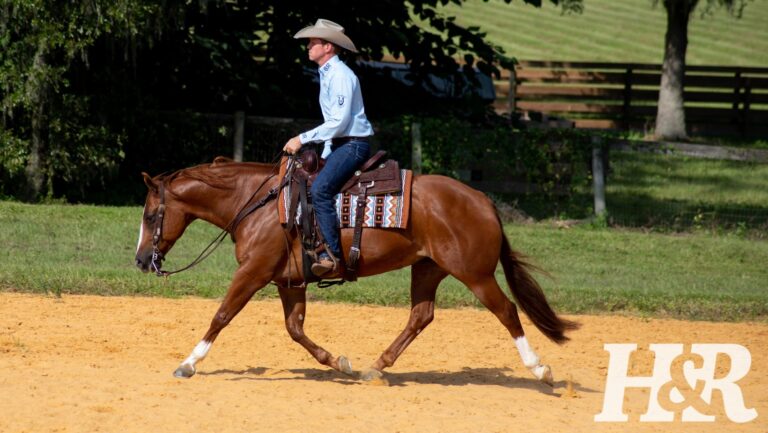This article is part of our Mental Health Awareness Month. Brought to you by Touched by a Horse.
Beyond the realms of riding and training, horses offer a profound journey towards developing emotional intelligence. This is an essential skill that enriches our interactions with our horse and extends its influence into all facets of life. Emotional intelligence (EI), encompasses the ability to perceive, understand, and manage both one’s own emotions and the emotions of others. It involves being aware of your feelings, harnessing that emotional insight to guide thinking and behavior, and effectively managing your relationships. EI is a great tool to have in your skillset to better regulate your own emotions and improve your relationships.
How Does This Relate to Horses?
In the context of working with horses, emotional intelligence plays a crucial role in establishing a productive connection between us and these wonderful animals. Understanding and managing your emotions is pivotal when interacting with horses. They are incredibly perceptive and responsive to human energy.
By being emotionally attuned to the cues and signals given off by the horses, you can adjust your behavior and approach. This can create a conducive environment for effective communication and trust-building. Moreover, emotional intelligence fosters empathy, which is paramount in the context of equine interactions. Using EI to guide your riding and training practices, can be incredibly beneficial to make sure you are meeting the needs of your horse.
Mutually Beneficial
Empathy allows you to comprehend the emotional state of your horse. This enables you to respond appropriately and provide the necessary support and understanding. Which, in turn, facilitates a deeper bond and mutual respect between both of you. Additionally, emotional intelligence aids in managing your own stress and emotions in the presence of horses. Horses thrive in a calm and reassuring atmosphere that is conducive to positive interactions and successful training outcomes.

The innate ability of your horse to perceive and respond to human emotions, often without relying on verbal communication, serves as a profound lesson in emotional awareness and empathy. Research and anecdotal evidence alike highlight how horses respond positively to trustworthy leadership, emotional transparency, and genuine interactions. Therefore positioning them as effective teachers of emotional intelligence.
Importance of Non-Verbal Communication
Horses, with their heightened sensitivity and perceptiveness, exemplify this trait in profound ways. They are often teaching us through their interactions and intuitive responses. Their keen awareness of non-verbal cues and subtle shifts in energy encourages us to become more attuned to the emotional dynamics within ourselves and in our relationships with others.
One of the defining attributes of horses as EI teachers is their reliance on non-verbal communication. Unlike humans, who heavily rely on verbal language to convey emotions, horses excel at reading and responding to signals beyond words. This unique ability prompts us to develop greater awareness of our own non-verbal communication.

A Mirror Reflecting Back At You
Horses also serve as powerful mirrors of our emotional states, reflecting back to us the energy and emotions we project. This phenomenon offers us an opportunity to gain insight into our emotional landscapes, encouraging reflection and self-awareness. Additionally, the mutual coordination of emotional states between humans and horses, as explored in the concept of emotional transfer, underscores the profound impact of emotional connection in human-horse interactions.
Horses stand as extraordinary mentors in the realm of emotional intelligence, guiding us to cultivate self-awareness, empathy, and genuine connections. Through their innate abilities and the profound lessons they impart, horses empower us to navigate our emotional landscapes with grace and understanding.






